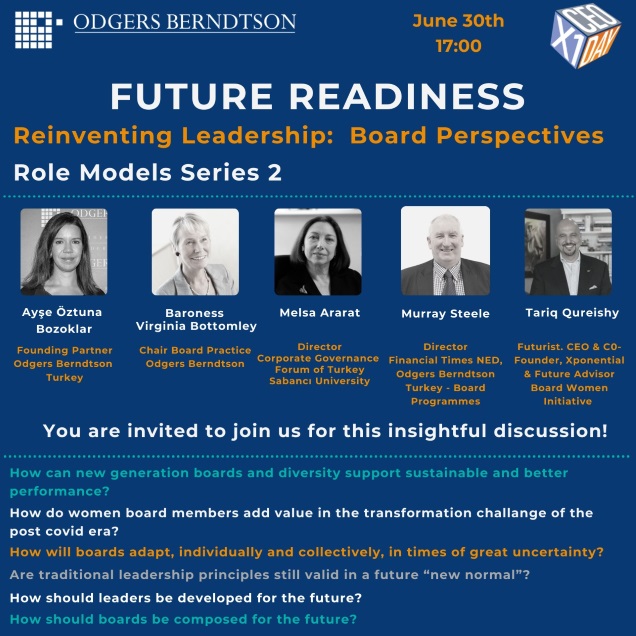07/07/2021
Sabancı University Istanbul International Center for Energy and Climate (IICEC) is organizing a webinar entitled ''Future of Net Zero Emission in the World & Europe and Implications for Turkey.''
07/07/2021
Sabancı University Istanbul International Center for Energy and Climate (IICEC) is organizing a webinar entitled ''Future of Net Zero Emission in the World & Europe and Implications for Turkey.''
04/07/2021
Sabancı University’s 18th undergraduate and 21st graduate classes’ alumni gathering was held physically on the campus in Tuzla. The ceremony was realized with the participation of Sabancı University President Yusuf Leblebici. Güler Sabancı, the Founding Chair of the Board of Trustees of Sabancı University addressed the alumni with a video message. Guests of Honor of the 2020 Alumni Reunion were Professor Uğur Şahin and Doctor Özlem Türeci, founders of the BioNTech company.
30/06/2021
Sabancı University Engineering and Natural Sciences Faculty Member Meltem Elitaş and her Molecular Biology, Genetics and Bioengineering Program graduate student Esra Şengül's article "Single-Cell Mechanophenotyping in Microfluidics to Evaluate Behavior of U87 Glioma Cells" became one of Hot Papers since it was published in the MDPI Microm
28/06/2021
Sakıp Sabancı Museum digitalSSM Archive and Research Space published the first ebook for its project Technological Arts Preservation. The book edited by Sabancı University’s faculty members Selçuk Artut and Cemal Yılmaz, as well as Osman Serhat Karaman, the director of digitalSSM, offers international content on its subject matter.
28/06/2021
Melsa Ararat, Director of the Corporate Governance Forum of Sabancı University, will be one of the speakers of “Future Readiness – Reinventing Leadership: Board Perspectives” panel organized by Odgers Berndtson.

22/06/2021
The Fine Arts Diploma Program, McNally School of Fine Arts, and the Faculty of Arts and Social Sciences (VAVCD Program), Sabancı University will be making an online collaborative project activity entitled, Project 3V (Visualize, Voice and Vision).
